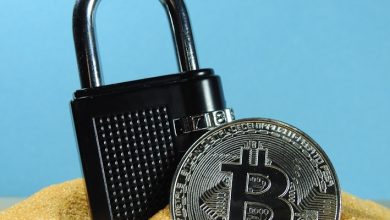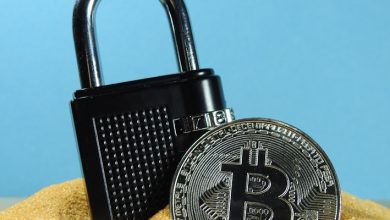Understanding the Risks of Peer-to-Peer Crypto Transactions

- What are Peer-to-Peer Crypto Transactions?
- The Benefits of Peer-to-Peer Crypto Transactions
- Common Risks Associated with Peer-to-Peer Crypto Transactions
- Security Measures for Safe Peer-to-Peer Crypto Transactions
- Regulatory Challenges in Peer-to-Peer Crypto Transactions
- Tips for Minimizing Risks in Peer-to-Peer Crypto Transactions
What are Peer-to-Peer Crypto Transactions?
Peer-to-peer (P2P) crypto transactions refer to the process of transferring digital assets directly between two parties without the need for an intermediary such as a bank or payment processor. This method allows for greater privacy and control over transactions, as well as reduced fees compared to traditional financial systems.
In a P2P crypto transaction, buyers and sellers connect through an online platform or marketplace where they can negotiate terms and exchange assets directly. The use of smart contracts can help automate and secure these transactions, ensuring that both parties fulfill their obligations.
While P2P crypto transactions offer many benefits, there are also inherent risks involved. One of the main concerns is the lack of regulatory oversight, which can make it easier for scammers to take advantage of unsuspecting individuals. Additionally, the irreversible nature of blockchain transactions means that once a transfer is made, it cannot be undone.
To mitigate these risks, it is essential for participants in P2P crypto transactions to conduct thorough research, verify the identity of the counterparty, and use reputable platforms with built-in security features. By taking these precautions, individuals can enjoy the benefits of P2P crypto transactions while minimizing the associated risks.
The Benefits of Peer-to-Peer Crypto Transactions
Peer-to-peer crypto transactions offer a range of benefits that make them an attractive option for many users. One of the key advantages of peer-to-peer transactions is the increased level of privacy they provide. Unlike traditional transactions that are processed through banks or other financial institutions, peer-to-peer transactions allow users to send and receive funds directly without the need for a third party to facilitate the transaction.
Another benefit of peer-to-peer crypto transactions is the lower fees associated with them. When using a traditional financial institution to process a transaction, users often have to pay a variety of fees, including transaction fees, currency conversion fees, and more. With peer-to-peer transactions, however, these fees are typically much lower, saving users money in the long run.
Additionally, peer-to-peer transactions can be faster and more convenient than traditional transactions. Because there is no need for a third party to approve the transaction, peer-to-peer transactions can be processed almost instantly, allowing users to send and receive funds quickly and easily. This can be especially beneficial for users who need to make time-sensitive transactions.
Common Risks Associated with Peer-to-Peer Crypto Transactions
There are several common risks associated with peer-to-peer crypto transactions that users should be aware of before engaging in such activities. These risks include:
- Counterparty Risk: One of the main risks of peer-to-peer crypto transactions is the counterparty risk, where the other party involved may not fulfill their end of the agreement.
- Security Risk: There is a security risk involved in peer-to-peer transactions as they are conducted online and are susceptible to hacking and other cyber threats.
- Regulatory Risk: Depending on the jurisdiction, peer-to-peer crypto transactions may not be legal or may be subject to regulations that could put users at risk of legal consequences.
- Scam Risk: There is a risk of falling victim to scams when engaging in peer-to-peer transactions, where the other party may not have honest intentions.
- Price Risk: The volatile nature of cryptocurrencies can also pose a risk in peer-to-peer transactions, where the value of the assets exchanged can fluctuate significantly.
It is essential for users to thoroughly research and understand these risks before participating in peer-to-peer crypto transactions to protect themselves and their assets.
Security Measures for Safe Peer-to-Peer Crypto Transactions
When engaging in peer-to-peer crypto transactions, it is crucial to prioritize security measures to safeguard your assets. By following best practices and implementing necessary precautions, you can minimize the risks associated with such transactions.
One of the fundamental security measures for safe peer-to-peer crypto transactions is to use a reputable escrow service. A reliable escrow service acts as a neutral third party that holds the funds until both parties fulfill their obligations. This helps prevent instances of fraud and ensures that the transaction is completed successfully.
Additionally, it is essential to verify the identity of the counterparty before proceeding with the transaction. Conduct thorough research and due diligence to confirm the legitimacy of the individual or entity you are dealing with. Communicate through secure channels and avoid sharing sensitive information that could compromise your security.
Another critical security measure is to use a secure and reputable cryptocurrency wallet. Choose a wallet that offers robust security features, such as two-factor authentication and encryption. Keep your private keys secure and avoid storing large amounts of cryptocurrency on exchanges or online wallets.
Furthermore, it is advisable to conduct transactions in well-lit and public places to minimize the risk of physical harm during in-person meetings. Always trust your instincts and prioritize your safety when meeting with strangers for crypto transactions.
Regulatory Challenges in Peer-to-Peer Crypto Transactions
One of the key challenges facing peer-to-peer crypto transactions is the regulatory environment in which they operate. Governments and regulatory bodies around the world are still grappling with how to effectively monitor and control these types of transactions. This lack of clear regulations can create uncertainty for users engaging in peer-to-peer crypto transactions, as they may not know what rules they are supposed to follow or what consequences they may face if they violate these rules.
Without clear regulatory guidelines in place, peer-to-peer crypto transactions can also be vulnerable to exploitation by bad actors. This lack of oversight can make it easier for scammers and fraudsters to take advantage of unsuspecting users, leading to potential financial losses and reputational damage. In addition, the anonymity and decentralized nature of many cryptocurrencies can make it difficult for law enforcement agencies to track down and prosecute those who engage in illegal activities using peer-to-peer transactions.
As governments and regulatory bodies continue to grapple with how to effectively regulate peer-to-peer crypto transactions, it is important for users to be aware of the potential risks involved. By staying informed about the regulatory environment in their country and taking steps to protect themselves against fraudulent activity, users can minimize the risks associated with engaging in peer-to-peer crypto transactions. Additionally, by advocating for clearer regulations and working with regulators to address any concerns, users can help ensure a safer and more secure environment for peer-to-peer crypto transactions in the future.
Tips for Minimizing Risks in Peer-to-Peer Crypto Transactions
When engaging in peer-to-peer crypto transactions, it is crucial to prioritize security to minimize risks. Here are some tips to help you safeguard your assets:
- Research the reputation of the person or platform you are transacting with to ensure they are trustworthy.
- Use escrow services to hold funds until both parties have fulfilled their end of the deal.
- Double-check wallet addresses before sending any cryptocurrency to avoid sending funds to the wrong recipient.
- Consider using a VPN to encrypt your internet connection and protect your personal information.
- Avoid sharing sensitive data such as private keys or passwords with anyone during the transaction process.



